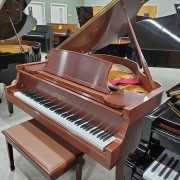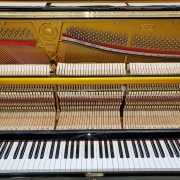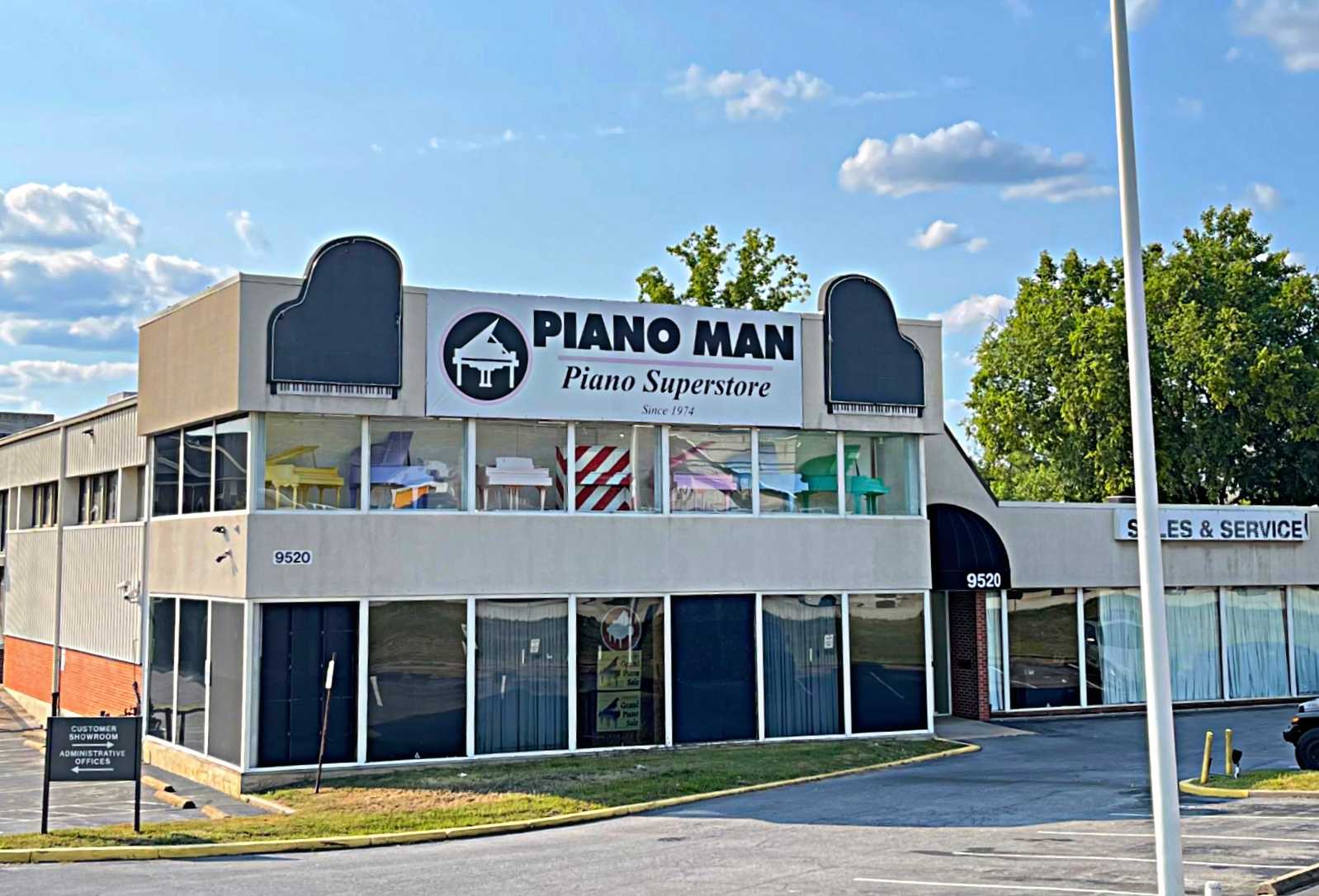Playin’ Away the Stuck-at-Home Blues
At the tender age of 5, my exasperated piano teacher quit in front of me, telling my mom I’d never be any good because I hated practicing and that she was done teaching me. Not surprisingly, that moment left a mark. I refused to touch a piano again until I was 12, when I asked my parents to buy me books so I could teach myself. After months of practicing, I could proudly play Fur Elise, but I never advanced beyond that. I discovered the tenor saxophone, joined the school band and lost interest in the piano. As I got older, I’d play a tune now and again for fun, but I didn’t work toward advancing my skills until recently.
A few months ago, I started working for Piano Man Superstore, where the kindly owner, Nick, rekindled my passion for piano. Whenever possible before the world came to a grinding halt due to COVID-19, I’d sit down at my favorite piano—a shiny ebony polish August Hoffman baby grand—and play. Sometimes Nick would sit at the piano next to me and teach me something new or correct me from his office feet away, but more often I’d just play my favorite songs from my childhood or try playing a song from the stacks of books in the showroom. Little by little, my chops started improving and I became progressively more eager to start practicing seriously.
Now that I’m working from home, I’m practicing every day—not just playing my favorite songs, but really practicing by playing scales and chords. After all, I have the time and a piano, and playing music is the best therapy when you’re stuck at home and stir crazy. It’s a proven stress-reliever that lowers blood pressure, slows your heart rate and increases serotonin, it brings the whole family together, and it’s a great way to break up the monotony of sheltering in place.
If you’ve always wanted to learn to play piano or want to get your child started, there’s never been a better time. There are tons of free educational videos online and virtual piano lessons available, and Piano Man Superstore can hook you up with an acoustic piano for a reasonable price and free delivery. We’ve been serving the DMV for over 45 years and aren’t letting the current crisis stop us from safely delivering the joy of music to people’s homes. In response to the pandemic, we’re now selling pianos through our website and via virtual tours with a 100% satisfaction guarantee. All the details are accessible through our homepage, including how we’re protecting customers during deliveries. Explore our site today to take your first steps toward learning a new skill while you’re isolated at home or call 877-635-1699 for more info.
Have a happy and healthy quarantine!
Laura Hill
Web Writer & Digital Marketing Specialist
P: 240-535-0955
E: writerontheblock@gmail.com

 2020, Piano Man Superstore
2020, Piano Man Superstore 2020, Piano Man Superstore
2020, Piano Man Superstore 2020, Piano Man Superstore
2020, Piano Man Superstore

